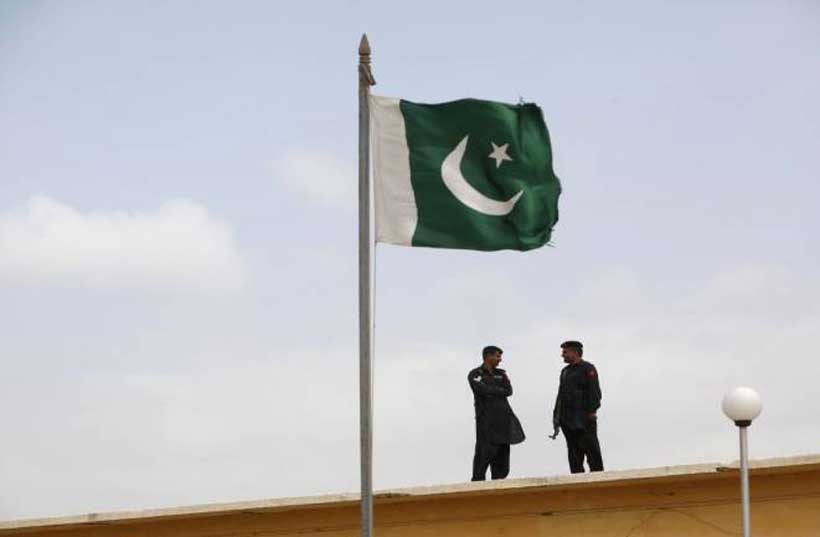
by Arnab Baidya 25 November 2023
In the dynamic realm of global economics, Pakistan stands at a crucial juncture, navigating the intricate landscape of financial reforms to meet the stringent requirements set by the Financial Action Task Force (FATF). This dedicated pursuit of international financial standards not only enhances Pakistan’s standing on the global stage but also presents a unique opportunity for the nation to refocus its energies inward, addressing a spectrum of challenges through comprehensive economic strategies.
The recently forged staff-level agreement between the International Monetary Fund (IMF) and Pakistani authorities serves as a testament to the nation’s unwavering commitment to economic revitalization. Subject to approval by the IMF’s Executive Board, this agreement signifies more than a financial injection of almost US$1.9 billion; it symbolizes a critical step towards fortifying domestic efforts and steering the country onto a path of sustained economic stability.
At the heart of this agreement lies a strategic economic program embedded within the US$3 billion Stand-By Arrangement (SBA). This multifaceted program encompasses a range of transformative reforms, from the meticulous pursuit of fiscal consolidation to the expeditious restructuring of the energy sector, the return to market-determined exchange rates, and the ambitious overhaul of state-owned enterprises. These reforms collectively represent a blueprint not only for attracting international investment but also for fostering sustainable job creation and fortifying social assistance initiatives.
The nascent economic recovery currently underway in Pakistan is a promising indicator of the efficacy of these comprehensive strategies. Buoyed by international support and a renewed sense of confidence, the meticulous execution of the FY24 budget, strategic adjustments in energy pricing, and a resurgence of foreign exchange inflows have collectively alleviated fiscal and external pressures. Yet, amidst these triumphs, the nation remains vigilant, acknowledging the persistent external risks that necessitate ongoing efforts to fortify economic resilience.
As Pakistan grapples with the intricacies of fulfilling FATF requirements, it is paramount to recognize the multifaceted approach being adopted to strengthen macroeconomic sustainability and foster balanced growth. The ongoing commitment to fiscal consolidation, the expansion of social safety nets, and the implementation of holistic energy sector reforms positions Pakistan on a trajectory toward sustained economic stability.
Proactive monetary policies stand as guardians against inflation, demonstrating the authorities’ readiness to address emerging challenges, whether associated with core inflation or exchange rate fluctuations. The financial sector’s resilience is a focal point, with initiatives in place to address undercapitalized institutions and align foreign exchange exposures with regulatory limits.
In tandem with these efforts, Pakistan is fostering deeper cooperation with international partners. The accelerated engagement with multilateral and bilateral partners underscores the urgency of timely external support, crucial for bolstering ongoing policy and reform efforts. As Pakistan inches closer to a comprehensive agreement with FATF, the global community has a unique opportunity to support and acknowledge the nation’s strides toward international standards while fostering stability on the domestic front. This juncture is not just about meeting regulatory benchmarks; it’s about providing Pakistan the necessary space and resources to tackle its domestic challenges comprehensively.
The impending agreement is a gateway to a transformative phase, enabling Pakistan to shift its focus inward and embark on a journey toward sustained resilience and prosperity. The global community’s recognition and support at this juncture can catalyze a new era for Pakistan, one where economic stability and internal development go hand in hand, creating a model for sustainable progress on the global stage.
Simultaneously, the expansion of social safety nets is a testament to the government’s dedication to protecting the vulnerable segments of society. Timely disbursements for social protection under the Benazir Income Support Program’s (BISP) budget allocation, significantly higher than the previous fiscal year, reflect a commitment to social welfare. The Unconditional Cash Transfers (UCT) Kafaalat program’s expansion to 9.3 million families, with an annual inflation adjustment, underscores the government’s effort to provide targeted assistance where it is most needed. Looking ahead, the authorities aspire to enhance the UCT Kafaalat generosity level and increase enrollment in Conditional Cash Transfer programs supporting children’s education and health.
The energy sector, a critical component of Pakistan’s economic landscape, is undergoing substantial reforms to reduce costs and restore its viability. With the combined circular debt across power and gas sectors exceeding 4% of GDP, immediate action was imperative. The government, while protecting vulnerable consumers, implemented pending power tariff adjustments and increased gas prices after a considerable duration, effective November 01, 2023. These adjustments, although substantial, were deemed necessary to avert further arrears that could jeopardize the sectors’ viability and the provision of critical energy supplies. The authorities are concurrently addressing cost-side pressures, including introducing private sector participation in Distribution Companies (DISCOs), institutionalizing recovery and anti-theft measures, improving Power Purchase Agreement (PPA) terms, and reducing incentives for captive power.
Returning to a market-determined exchange rate is a strategic move to sustainably alleviate external pressures and rebuild foreign exchange reserves. While inflows following increased regulatory and law enforcement measures have normalized import and foreign exchange payments and contributed to rebuilding reserves, the authorities acknowledge that the rupee must remain market-determined. To support this, plans are underway to strengthen the transparency and efficiency of the foreign exchange market, with a commitment to refrain from administrative actions influencing the rupee’s value.
State-owned enterprise (SoE) and governance reforms form a critical pillar in enhancing the business environment, stimulating investment, and fostering job creation. Following the passage of the State-Owned Enterprises (SoE) law, the authorities are actively implementing their SoE policy and triage plan, including the privatization of select SoEs. High governance and transparency standards are paramount for managing assets under the newly created Sovereign Wealth Fund (SWF) and the operations of the State-Owned Enterprises Holding Company (SOEHC). The commitment to public access to asset declarations from Cabinet members and the establishment of a task force, featuring independent experts, to conduct a
